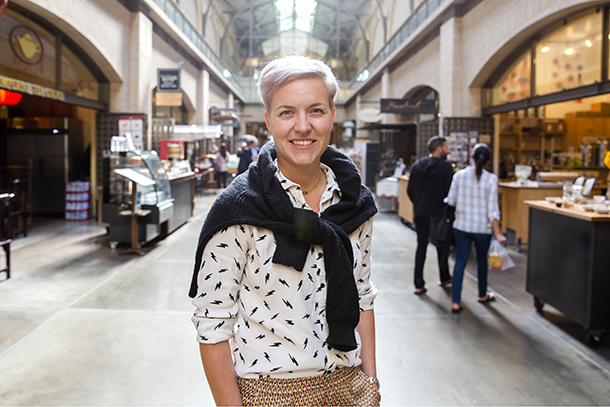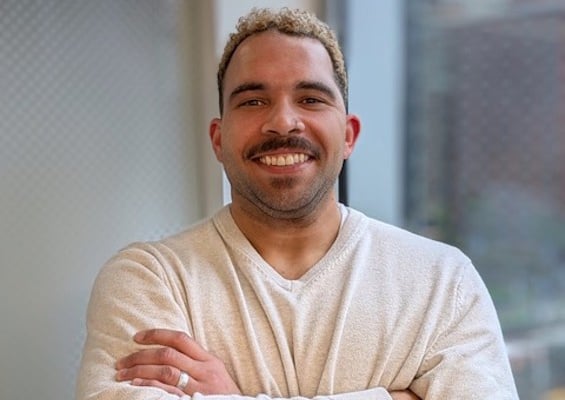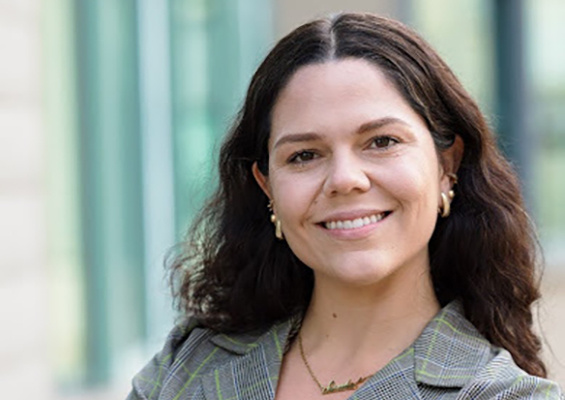Tess Peppers, MBA 19, attended every single admissions event she could when she was applying to Berkeley Haas, including one at which then-Dean Lyons spoke. She'd noticed that the evening and weekend MBA program had a low percentage of women students—about 28%—and after his talk she asked him about it.
“I asked why he thought the percentage of women in the program was low, and he said that it had to do with the pipeline, and with the stages of life women were in regarding family building," she says. "I didn't think that was an acceptable answer. When people refer to ‘pipeline issues’ it begs the question not only of why the pipeline isn't bigger, but also whether the population you want to attract can envision themselves as participants in the community.”
Particularly for students who were also parents, Tess noticed that Haas wasn't highlighting UC Berkeley's childcare options—of which there are many. And sometimes student parents' needs were overlooked. For example, the new Chou Hall, considered to be the nation's greenest academic building, had no nursing room. (It does now.)
Disrupting how things have always been and creating a new way of being takes teamwork."
“During orientation weekend—jam-packed, no free time—one of my classmates kept disappearing for an hour. It turns out she was running back to her hotel to nurse,” Tess recalls.
By fall of 2017, Tess had put together a volunteer effort modeled after a similar initiative the full-time MBA program had established that matched current students with women applying to Haas, offering encouragement and support.
“We got together with professors and the admissions office staff, identified all the women who were applying, and paired them with a female student or alumna to have one-on-one conversations throughout the application process,” Tess says.
By the time she graduated this year, there were 60 volunteers, many of whom had benefited from this one-on-one support themselves. In fact, the initiative boosted the percentage of women students from 28% in the class of 2019 to 33% in the class of 2021. It is now called the Admission Ambassadors Program and is being used with a variety of population groups underrepresented at Haas.
The importance of childcare isn't an abstract idea for Tess. She came to motherhood young, in the middle of the 2008 recession, so staying home with her child wasn't a choice. She had to work. Her own experience with juggling childrearing and career got her passionate about the issue of childcare—so passionate, that when she graduated from Haas she accepted a job with Wonderschool, a network of in-home childcare programs.
“When I talk to fellow parents now, especially women who have taken time off from their careers to raise their children, they describe a real struggle, an identity crisis. It's like they stay home because it feels too complicated to integrate work and raising children. Childcare needs to be a given. Without it, women are often prevented from participating fully in the workforce,” she says.
Disrupting how things have always been and creating a new way of being takes teamwork, Tess says, noting that the success of the applicant support program couldn’t have been accomplished without help from her peers.
“None of this was possible for me to do just on my own,” she says. “So many classmates helped, and I'm grateful for that. It takes all of us to ‘move the needle’ when it comes to diversity, equity, and inclusion.”










